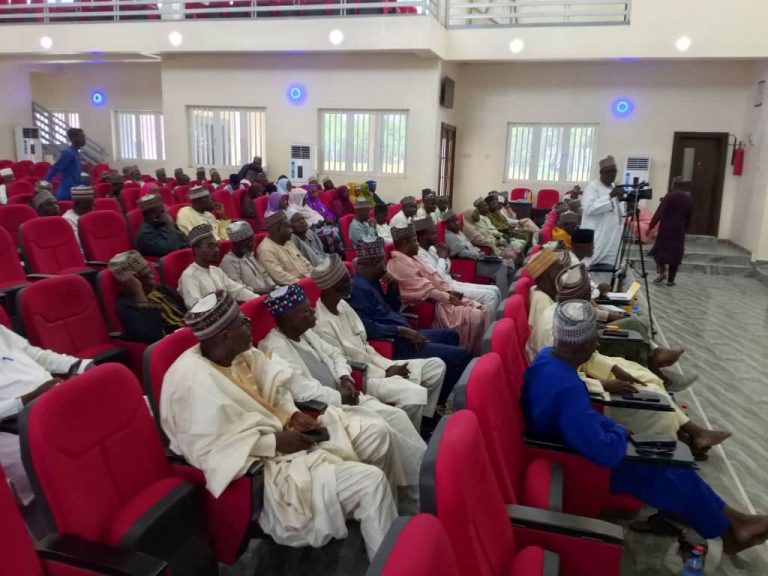In a powerful show of unity and purpose, the Sokoto Advancement Forum (SAF) has taken bold steps to drive inclusive development across Sokoto State — placing ordinary people at the heart of its mission.
At its third stakeholders’ meeting held at Umaru Ali Shinkafi Polytechnic, Sokoto, members of the forum rolled out a strategic roadmap aimed at tackling pressing issues such as poverty, insecurity, poor healthcare, and limited access to education — especially for women and youth.
Professor Mohammad Ahmad Wali, Interim Chairman of SAF, spoke with passion about the journey so far. “SAF is not just an idea anymore. It’s now a living movement of people who care about Sokoto. In just 80 days, we’ve gone from a vision to a fully registered organisation with a secretariat, constitution, and 11 working groups focused on key sectors like education, health, agriculture, ICT, and security,” he said.
At the heart of SAF’s approach is collaboration — with government, citizens, and experts all working together to solve Sokoto’s problems. “We’re not here to compete with the government. We’re here to support it, to fill the gaps, and bring new ideas to the table,” Prof. Wali added.
Professor Riskuwa Arabu Shehu, the forum’s Co-Chairman, made it clear that SAF has no political agenda. “We are neutral, independent, and focused only on one thing — making Sokoto a better place. Our role is to guide, advise, and support our leaders with facts, not politics,” he explained.
The meeting brought together an inspiring mix of voices: traditional rulers, Islamic scholars, retired civil servants, academics, professionals, civil society groups, women leaders, youth representatives, and leaders of various ethnic communities in Sokoto. Their presence underscored a shared hunger for meaningful, grassroots-driven change.
The forum’s working groups have already begun developing blueprints and pilot projects. Their immediate focus includes getting out-of-school children back into classrooms, reforming the Almajiri system, strengthening primary healthcare, supporting farmers, and building community-led security networks to fight banditry.
Prof. Wali summed up their vision simply: “We want a Sokoto where every child goes to school, every mother can get medical help, and every farmer can feed his family with dignity. We’re building a future where no one is left behind.”
To deepen its reach, SAF announced plans to set up local chapters in all local government areas. These chapters will help connect communities directly with the forum, ensuring local needs are heard and addressed, and that every project is monitored and transparent.
The Forum has invited respected figures — including Governor Ahmad Aliyu, the Sultan of Sokoto, His Eminence Sa’ad Abubakar III, and former state governors — to serve as patrons. Their support is expected to strengthen the forum’s credibility and unity of purpose.
SAF is now preparing for its first General Assembly in December 2025, where it will elect permanent leadership, ratify its strategic plan, and roll out major initiatives.
“Our interventions will not be empty promises. Every move we make will be backed by data, tracked, and publicly reported. People deserve to see real, lasting change — not just speeches,” Prof. Riskuwa assured.
Beyond development projects, SAF is committed to inclusion, accountability, and transparency. The forum promises that every naira will be accounted for, every success story shared, and every young person and woman given a seat at the table.
“This forum belongs to every son and daughter of Sokoto — young or old, at home or in the diaspora. We’re rewriting the story of our state, and everyone has a role to play,” Prof. Wali concluded to loud applause.
As the meeting wrapped up, stakeholders praised the forum’s practical and inclusive vision — one that places people, not politics, at the center of development. For many in Sokoto, SAF offers a new hope that real change is not only possible but already underway.
By Usman Mohammed Binji


